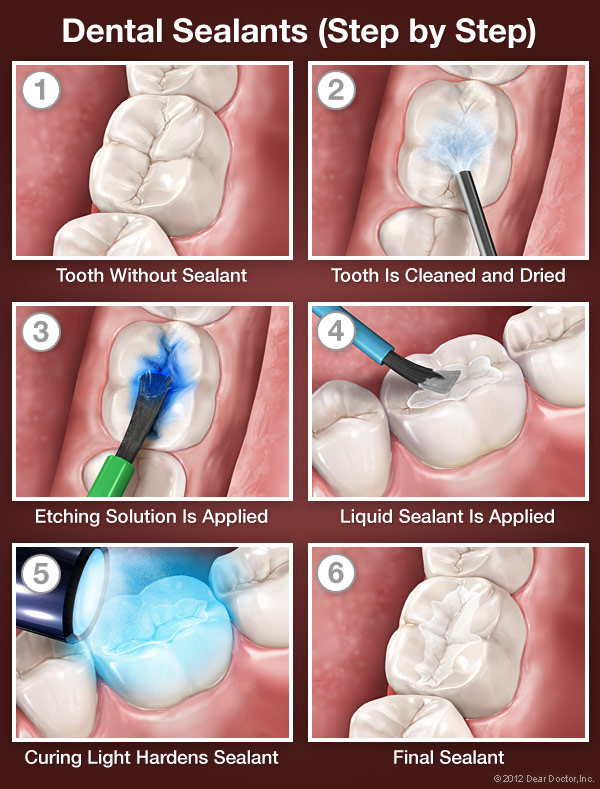It’s January and there’s never a better time for a quick reminder about what we can all do to maintain our oral health. Sometimes our teeth can be forgotten or avoided, whether it’s because of cost, fear or convenience, but what many people are unaware of is that there are several serious conditions that can start with gingivitis, cavities and plaque in our mouths.
When it comes to oral health there are some very general habits that you can form and remember that will help prevent more serious dental issues, and others that will involve an appointment, like dental sealants. In this month’s blog we will review a few habits that you can do every day to help prevent painful and costly situations like root canals and crowns.
Obviously the main thing you can do to prevent cavities is to brush and floss twice per day. This and using a mouthwash with fluoride will freshen breath, help prevent or control tooth decay, reduce plaque, prevent or reduce gingivitis, and reduce the speed that tartar forms on the teeth.

Other tips that can reduce decay:
Drink water after eating something sweet! This will help rinse the sugar off your teeth and help prevent decay.
Avoid sticky candy that will stick to your teeth.
Chew sugar-free gum.
Don’t buy a toothbrush that will be too hard on your gums. The key is to buy a toothbrush that will be sturdy enough to remove plaque, but not so hard that it will damage your gums.
Make sure to brush for at least 2 minutes.
Make sure to replace your toothbrush every 3 months.
Additionally, it’s tremendously important that you remember to have your teeth professionally cleaned every six months and to make your dentist or hygienist aware of any tooth pain, sensitivity, discomfort, or injury that might have impacted your teeth.
Lastly, sealants can be a great way for you to prevent cavities, especially in your child’s molars. We see a great reduction in decay within molars of our patients whose teeth have been sealed or “bonded”.
What is a sealant?
Many of the cavities that occur during childhood start in the deep, tiny grooves of teeth, especially molars. A tooth sealant – also known as a dental sealant, or bonding – is a plastic resin placed in the grooves of the chewing surfaces of teeth that are difficult to clean, preventing decay and cavities.
Plaque is formed by naturally-occurring bacteria in our mouths. This sticky, yellowish substance clings to the surfaces of our teeth and eventually results in tooth decay. Brushing and flossing regularly helps rid teeth of plaque. However, plaque that remains in between teeth or among grooves on the top surface of teeth can be difficult to impossible to eliminate when brushing or flossing.
A tooth sealant made of plastic resin creates a smooth surface that settles in between and along the grooves of teeth. This prevents plaque from settling into those crevices, making it much easier to clean away plaque and bacteria. Rest assured, the sealants we use are BPA-free.
With sealants, tooth brushing and flossing becomes more effective against tooth decay. Sealants are typically applied to children’s teeth as a preventative measure during the formative years, when tooth decay is most prevalent, but may be applied to adults’ teeth as well depending on each person’s level of need.
As always, we at Beaverton TenderCare are here to answer all your questions, address your concerns and calm your nerves. We look forward to seeing you and your family soon for your preventative care needs. Make your appointment today: www.NurtureYourSmile.com.


